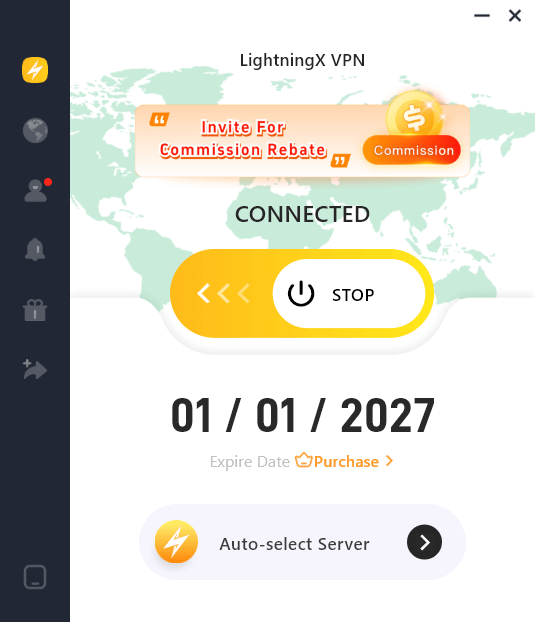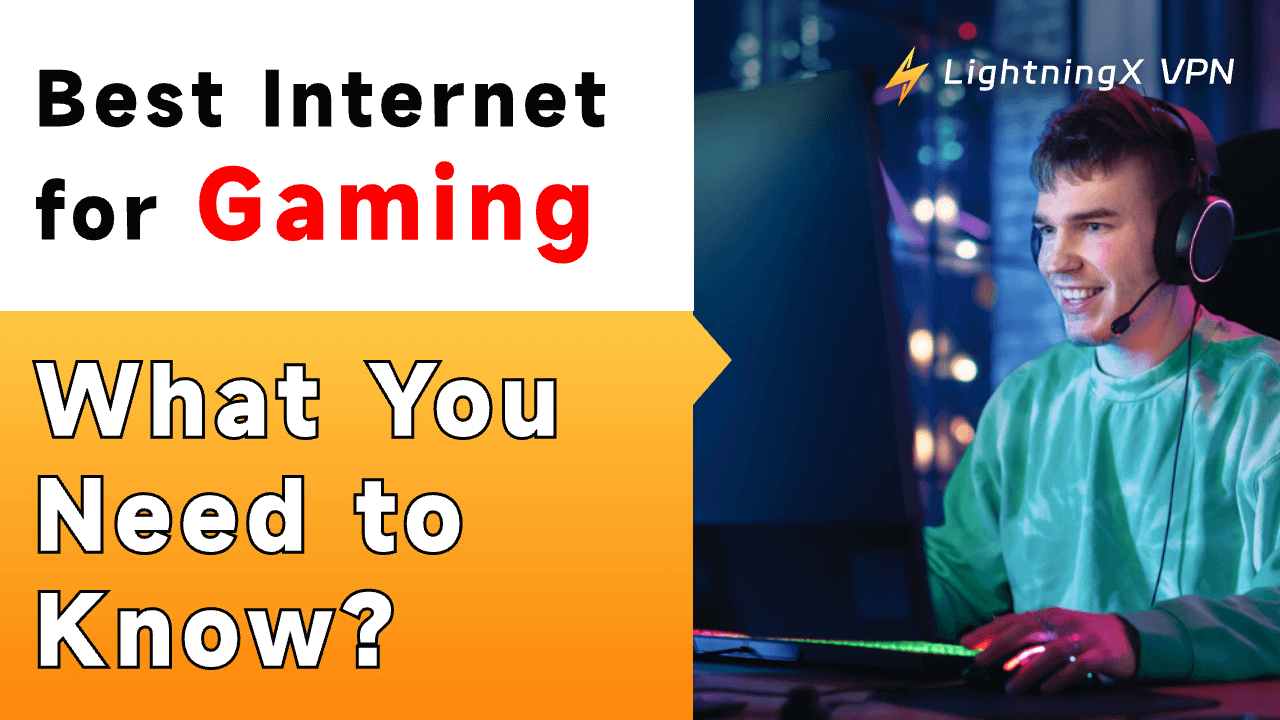If you’re a gamer, having a good internet connection is crucial. Lag, slow download speeds, and unstable connections can ruin your gaming experience. But with so many internet options out there, how do you choose the best one for gaming? This blog will guide you through the key factors you need to consider when choosing the best internet for gaming. We’ll also look at different types of internet connections and what they offer to gamers.
Key Factors in Choosing the Best Internet for Gaming
Now that you know why the internet matters for gaming, let’s look at the factors you should consider when choosing the best internet connection for your gaming needs.
Low Latency:
As mentioned earlier, low latency is critical for online gaming. Look for an internet provider that offers low latency, typically under 50ms. This will give you a smoother, more responsive gaming experience.
High Download and Upload Speeds:
For most games, a download speed of at least 25 Mbps is recommended. But if you’re downloading large games or streaming in high definition, faster speeds are better. Upload speeds of at least 3 Mbps are usually enough for most games, but higher is better if you plan to stream your gameplay.
Unlimited Data:
Gaming can use a lot of data, especially if you download games, updates, or stream your gameplay. Make sure your internet plan offers unlimited data or a high enough data cap, so you don’t run out in the middle of the month.
Stable Connection:
A stable connection is essential for gaming. Fiber-optic and cable internet generally offer more stable connections than satellite or DSL, which can be affected by weather or distance from the provider’s hub.
Customer Support:
Good customer support can be crucial if you run into issues with your internet connection. Look for an internet provider with a strong reputation for customer service, so you can get help quickly if needed.
Best Internet for Gaming: Internet Speed vs Gaming Needs
| Download Speed | Upload Speed | Gaming Type & Use Case |
| 25–50 Mbps | ≥3 Mbps | Single-player games, 1080p multiplayer games, and light streaming |
| 100–200 Mbps | ≥5–10 Mbps | Large multiplayer online games, HD streaming, and fast game downloads |
| 300–500 Mbps | ≥20 Mbps | 4K gaming, multiple devices online, large files download quickly |
| 1 Gbps+ | ≥50 Mbps | High-end competitive gaming, 4K/8K streaming, multiple devices simultaneously, ultra-low latency |
Types of Internet Connections for Gaming
There are several types of internet connections available, but not all of them are equally good for gaming. Let’s take a look at the most common options and see how they stack up.
Fiber-Optic Internet:
If fiber-optic internet is available in your area, it’s the best option for gaming. It offers the fastest speeds, lowest latency, and most stable connection.
- Speed: Fiber-optic internet is the fastest type of internet available, offering speeds up to 1 Gbps or more.
- Latency: Fiber has the lowest latency, often under 10ms, making it ideal for gaming.
- Stability: Fiber is highly stable and less affected by external factors like weather or network congestion.
Cable Internet:
Cable internet is a solid choice for gaming, especially if fiber isn’t available. It offers good speeds and low latency, but the connection may fluctuate during peak times.
- Speed: Cable internet is widely available and offers speeds ranging from 25 Mbps to 500 Mbps or more, depending on the plan.
- Latency: Latency with cable internet is typically low, but it can be higher during peak usage times.
- Stability: Cable is generally stable, but the connection can slow down if many people in your area are using the internet at the same time.
Related: Best Ethernet Cable for Gaming: Compatible with PC, PS5, etc.
5G Home Internet:
5G home internet is a promising option for gaming, especially in areas where fiber or cable isn’t available. If you have good 5G coverage, it can be a great choice.
- Speed: 5G home internet offers speeds comparable to fiber or cable, with the potential for gigabit speeds.
- Latency: 5G can offer very low latency, similar to fiber-optic connections, depending on the coverage in your area.
- Stability: 5G is generally stable, but it can be affected by signal strength and network congestion.
Important Note:
For gamers relying on Wi-Fi, paying attention to router choice, frequency band, and placement is important, since a well-configured Wi-Fi for gaming connections can greatly improve latency and stability.
However, the connection’s foundation is paramount: Fiber-optic is the superior technology, followed by Cable (Coaxial), 5G Wireless, and finally Satellite (which should generally be avoided due to high latency).
Regardless of the underlying technology, always use a wired (Ethernet) connection at home for the best stability and lowest latency.
Furthermore, use dedicated devices (modem, router, Wi-Fi access point) instead of all-in-one units for better performance, and if network congestion is a risk, ensure your router supports advanced Quality of Service (QoS) protocols like FQ_CODEL or CAKE to maintain low latency during gameplay.
Choosing the Best Internet for Gaming: Recommended Providers
Even after optimizing your setup for gaming, the best internet for gaming ultimately depends on your choice of ISP. Below are some of the most popular providers in the U.S., along with their key features, pricing, and suitability for gamers.
AT&T Internet
- Why it’s good for gaming: AT&T Fiber offers extremely high-speed, low-latency internet, making it ideal for competitive online gaming and streaming. (Speeds range from 300 Mbps up to 5 Gbps)[Is 300 Mbps Internet Fast?]
- Data & Bundles: Unlimited data and bundled services are included.
- Limitations: Coverage is limited to metropolitan areas, so availability may be an issue depending on your location.
- Pricing: $55–$250 per month, depending on speed and package.
- Summary: Excellent choice for gamers in covered areas who want the fastest, most stable connection.
Verizon Fios
- Why it’s good for gaming: Offers fast, symmetrical speeds (download and upload), which is perfect for multiplayer games and game streaming. (Speeds range from 200 Mbps up to 2 Gbps)
- Data & bundles: Unlimited data bundling with streaming services is available at a discount.
- Limitations: Higher cost may be prohibitive for budget-conscious users.
- Pricing: $49.99–$109 per month, depending on plan and package.
- Summary: Reliable option for gamers who want a balance of speed, stability, and features.b
Xfinity
- Why it’s good for gaming: Affordable and widely available across the U.S., suitable for casual gamers or households with multiple devices. (Speeds range from 50 Mbps up to 2 Gbps)
- Data & Bundles: Standard packages; user-friendly setup.
- Limitations: Network speed is average compared to AT&T Fiber or Verizon Fios; additional equipment fees (ETF) may apply after a period of use.
- Pricing: $19.99–$65 per month, depending on plan.
- Summary: Good for gamers looking for a budget-friendly, broadly available option, but upload speed may limit performance in high-demand scenarios.
Additional Tips for Optimizing Your Gaming Internet
Even with a good internet connection, there are ways to further optimize your setup for the best gaming experience.
1. Use a Wired Connection:
Whenever possible, connect your gaming device directly to your router with an Ethernet cable. Wired connections offer more stability and lower latency compared to Wi-Fi.
2. Optimize Your Router Settings:
Adjust your router’s Quality of Service settings to prioritize gaming traffic. This ensures your games get the bandwidth they need, even when other devices are using the internet.
3. Close Background Apps:
Close any unnecessary apps or downloads on your device while gaming. This frees up bandwidth and reduces the chances of lag.
4. Update Your Hardware:
Make sure your modem, router, and gaming device are up to date. Older hardware might not support the fastest speeds or the latest technologies.
5. Download a VPN product:
A VPN can avoid ISPs imposing speed limits on your network, making your internet faster and more stable. For example, LightningX VPN can meet all your needs. With stable network connections, make sure there won’t be any accidents when you are immersed in your gaming world.

Don’t miss the 30-day money-back policy. With widespread nodes all over the world, it is available in many regions. Enjoy your game experience with LightningX VPN now!
Conclusion
Ultimately, the best internet connection for gaming is one that meets your specific needs. Consider how many devices are on your network, what types of games you play, and your budget when choosing an internet plan. By selecting the right connection, you can enjoy a smoother and better experience every time.















